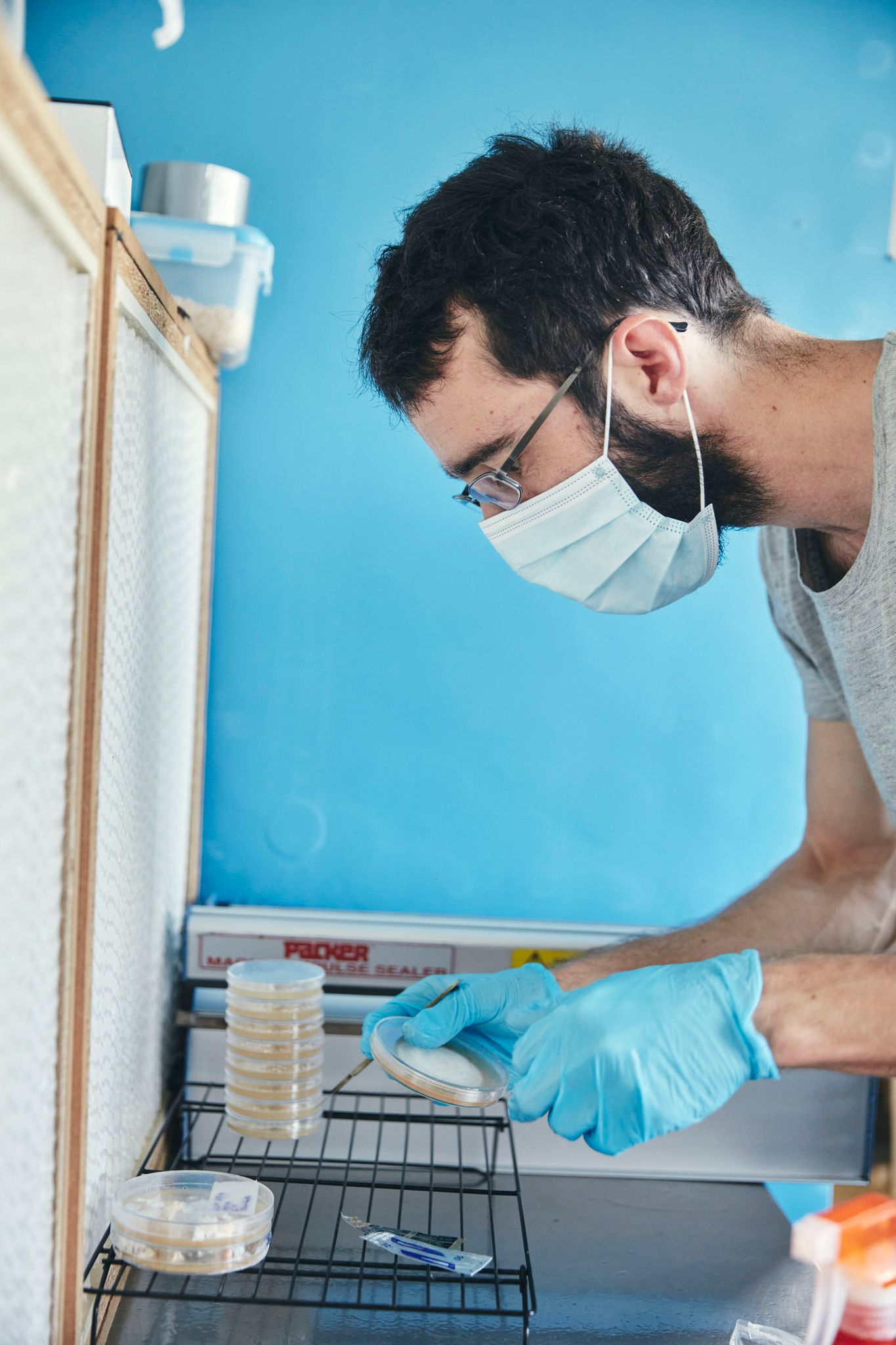Reishi: Nature’s Answer to Stress and Inflammation
5 November 2024Blue Monday - gut health helpers to boost your mood
Blue Monday, the third Monday in January, is the so-called saddest day of the year.
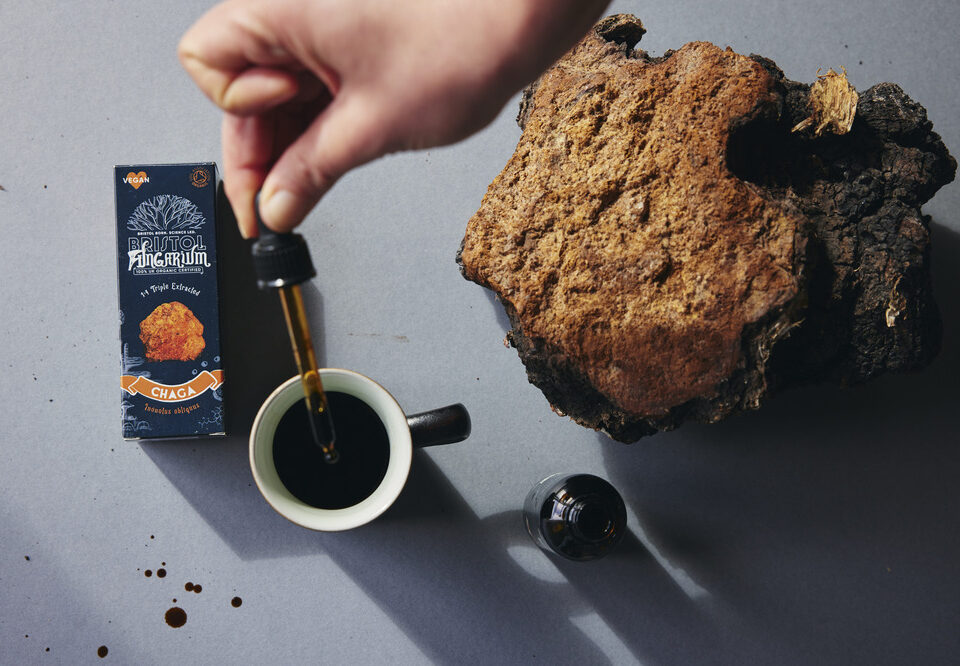
Christmas has been and gone, reality sets back in while the cosy decorations are tidied away and the coldest wettest weather makes the month seem to drag on endlessly even though each day is cut short too early by a setting sun. The term Blue Monday itself was actually coined by a travel company, as an explanation to people spending the least amount of money, and to coax them into buying a trip to cheer themselves up. While it may have been used as a sales tactic, this time of year in the northern hemisphere often has people feeling low and unmotivated. It’s a time where winter sniffles are prevalent, optimistic New Year’s resolutions start to fizzle out for many, and the cold dark weather leads to people shutting themselves in.
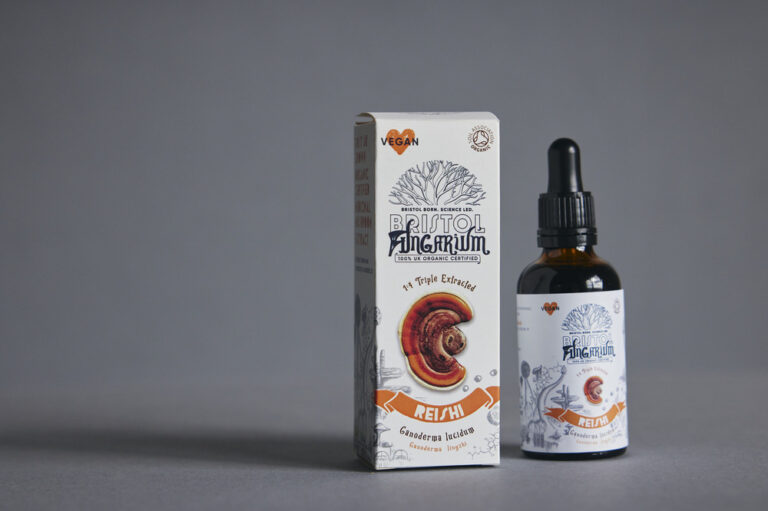
Keeping your Gut Health and mood in shape this Jan
It’s a key time to look after yourself, both physically and mentally. So what can you do? Combat the darkness with lots of cosy lights and candles. Avoid isolating indoors alone despite the unappealing outside – meet up with a friend, call someone you haven’t in a while but keep meaning to, schedule an activity. Keep moving to stimulate those endorphins; a walk or some yoga right at home will do the trick, no need to feel deflated over unrealistic gym goals that turned out impossible to stay on top of when everyday life kicks in. Similarly, a restrictive diet isn’t necessary, just try to maintain a varied, balanced diet. With that in mind, let’s explore our gut health, its direct connection to our brain and mood, and how to keep both in tip top shape this January.
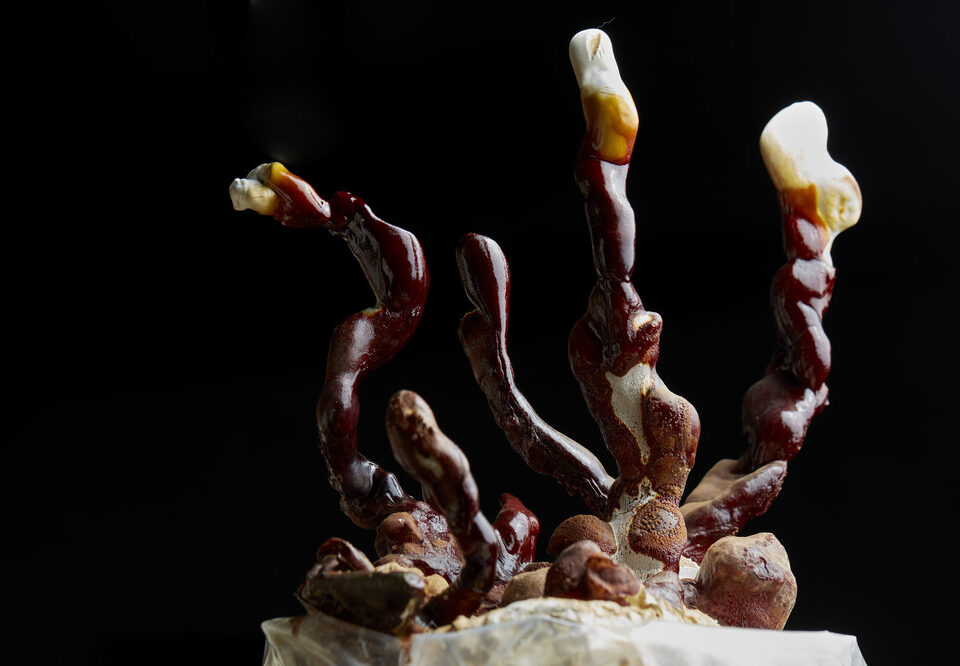
The second brain and the nervous system
More and more research is angling in on gut health and the links between our insides and our overall health. The gut is sometimes called the second brain, because hidden in the walls of the digestive system is the enteric nervous system. It’s made of two thin layers of more than 100 million nerve cells lining the entirety of the intestinal tract.
This second brain is the largest part of the autonomic nervous system; the part that doesn’t think your thoughts but controls key functions. It’s in charge of controlling digestion, from swallowing to releasing the right enzymes to help break down food. These nerves also communicate directly with our actual brain, through the brain gut connection. This link is proving more important than first believed. Many disorders have both neurological and gastrointestinal consequences, such as autism spectrum disorders, Parkinson’s and Alzheimer’s disease. It has also been thought for a long time that emotional conditions such as depression and anxiety lead to bowel problems such as IBS, constipation, stomach upset, etc., but it may be just as much the other way round! Irritation in the gastrointestinal system sends signals to the central nervous system through the gut brain axis that trigger mood changes. Looking after our gut health can be a big help in keeping our complex biological machinery in balance and boosting our mood!
The things we eat don’t just feed us, they also feed our symbiotic gut microbiome, living in our gastrointestinal tracts. The gut microbiome is also called the microbial organ, and increased research into this component of our digestive system over the past two decades has led to the realisation that gut microbes have far reaching effects on virtually all organ systems. A human microbiota contains more than ten trillion microorganisms, with more than 1000 species of known bacteria. Our bodies contain more bacterial cells than it does human cells, and 150 times more bacterial genes than our own genetic makeup. This amazing feat of symbiosis has coevolved over a very long time, and we rely on these microorganisms completely.
There are two main groups of bacteria in the microbiome: Bacteroidetes and Firmicutes. They help us digest foods we can’t break down ourselves relying solely on stomach and intestinal enzymes, as well as help us to better digest both carbohydrates and fats. Some of them even produce vitamins such as B and K for us! They also play a key role in the immune system, acting as a first line of defense to stop pathogens from entering through the mucosa. Psychological and physical stressors can affect the composition and metabolic activity of the gut bacteria, and changes to the gut microbiome can in turn affect emotional behaviour and related brain systems.
So, now that we know that our guts are closely tied to our main brains, and what the microbiome in our digestive system does for us, what can we do in return to keep it happy?
Prebiotics is a term for food ingredients that stimulate the growth of helpful gut bacteria and help to maintain balance between the Bacteroides and the Firmicutes. Prebiotics also help to counteract internal pathogens (bad bacteria) found in our bodies, which helps the immune system focus its efforts on external attackers, such as cold and flu viruses.
Mushrooms are a rich source of prebiotics, with their abundance of non-digestible polysaccharides. Our fungal friends boost health by inhibiting the binding of harmful bacteria in the body, by promoting the growth of specific gut microbiota, producing short chain fatty acids, and regulating lipid metabolism.
Chaga has a 98.6% polysaccharide content, and studies have shown that it successfully changed the gut microbiota in favour of Bacteroidetes, making for a healthier bacterial profile. Turkey tail mushrooms contain high amounts of polysaccharopeptide, which has been shown to modify both bifidobacterium and lactobacillus species in a positive way, while lion’s mane also changed both composition and activity of gut microbiota to create nutritional and health benefits to the host. Reishi has even been reported to reduce obesity in mice through modulation of the gut microbiota composition: scientists saw a reduction in body weight, inflammation and insulin resistance in mice that were fed a high fat diet and then given reishi extract as a prebiotic. The reishi reversed gut dysbiosis (imbalance in the microorganism ratios), showing just how impactful the right gut health supplement can be.
On this Blue Monday, look after yourself: your gut, your brain, and your microbiome! Help your bacteria to help you by giving them super-boosting pre-biotics in the form of mushrooms. (Click here to read about other health benefits of mushrooms, their role as immunomodulators, or to deep dive into Reishi)
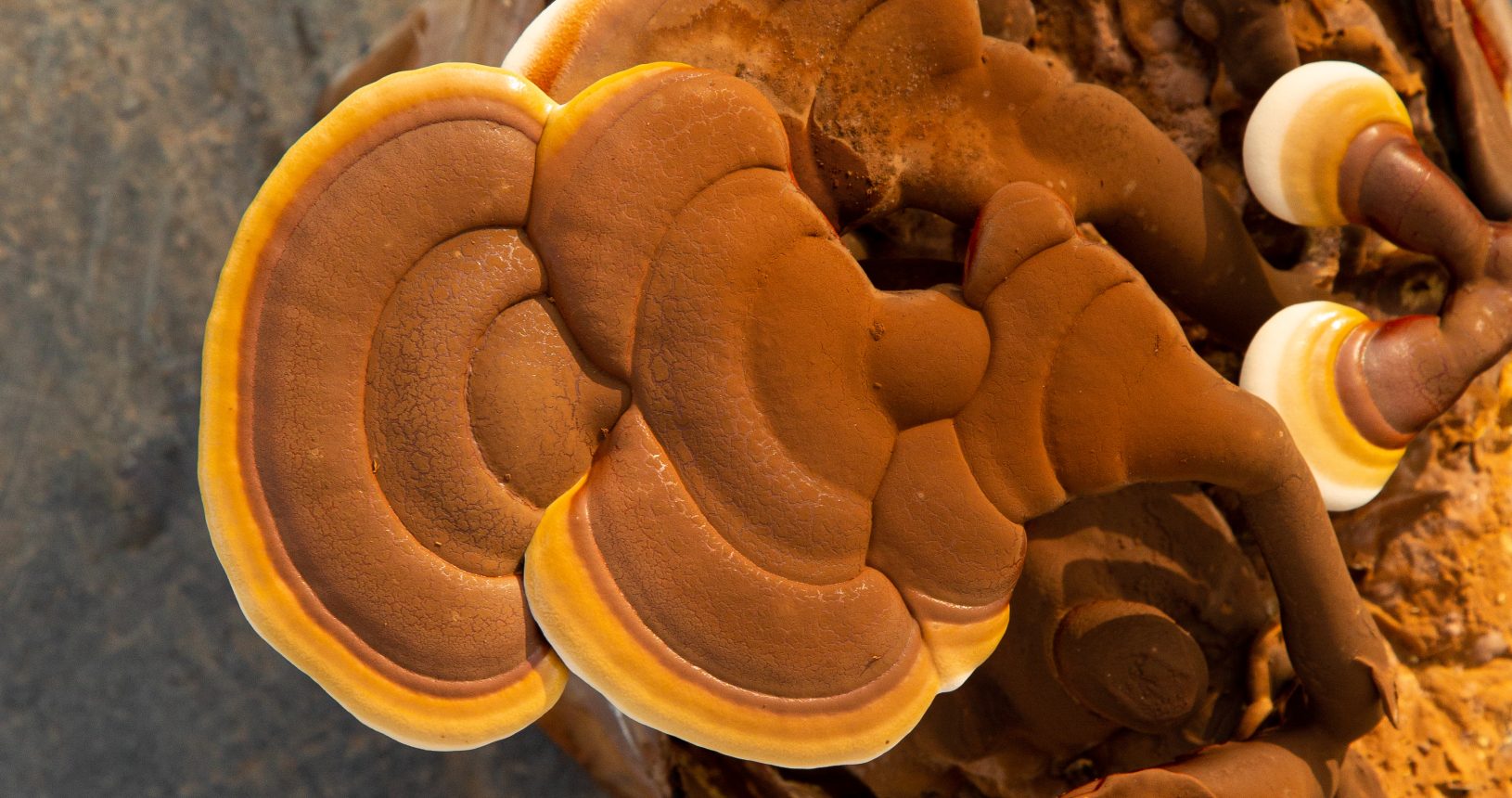
On this Blue Monday, look after yourself: your gut, your brain, and your microbiome! Help your bacteria to help you by giving them super-boosting pre-biotics in the form of mushrooms. (Click here to read about other health benefits of mushrooms, their role as immunomodulators, or to deep dive into Reishi)
Give it a go for yourself, try our Organic Reishi tincture here.
References;
- Avetisyan, M., Schill, E.M. and Heuckeroth, R.O. (2015) ‘Building a second brain in the bowel’, Journal of Clinical Investigation, 125(3), pp. 899–907. doi:10.1172/jci76307.
- The brain-gut connection (2024) Johns Hopkins Medicine. Available at: https://www.hopkinsmedicine.org/health/wellness-and-prevention/the-brain-gut-connection (Accessed: 17 January 2025).
- Hu, Y. et al. (2017) ‘Inonotus obliquus polysaccharide regulates gut microbiota of chronic pancreatitis in mice’, AMB Express, 7(1). doi:10.1186/s13568-017-0341-1.
- Jayachandran, M., Xiao, J. and Xu, B. (2017) ‘A critical review on health promoting benefits of edible mushrooms through gut microbiota’, International Journal of Molecular Sciences, 18(9), p. 1934. doi:10.3390/ijms18091934.
- Kulshreshtha, S. (2023) ‘Mushroom as prebiotics: A sustainable approach for Healthcare’, Probiotics and Antimicrobial Proteins, 16(3), pp. 699–712. doi:10.1007/s12602-023-10164-5.
- Mayer, E.A. et al. (2014) ‘Gut microbes and the brain: Paradigm shift in neuroscience’, The Journal of Neuroscience, 34(46), pp. 15490–15496. doi:10.1523/jneurosci.3299-14.2014.
- McCormick, B.A. and Chang, E.B. (2021) ‘The gut microbiome: Reaching the promise through discovery— advancing knowledge and discovery of the gut microbiome in the age of precision medicine’, Gastroenterology, 160(2), pp. 479–482. doi:10.1053/j.gastro.2020.12.035.
- Rao, M. and Gershon, M.D. (2016) ‘The bowel and beyond: The enteric nervous system in neurological disorders’, Nature Reviews Gastroenterology & Hepatology, 13(9), pp. 517–528. doi:10.1038/nrgastro.2016.107.



